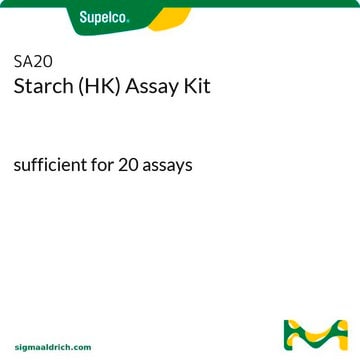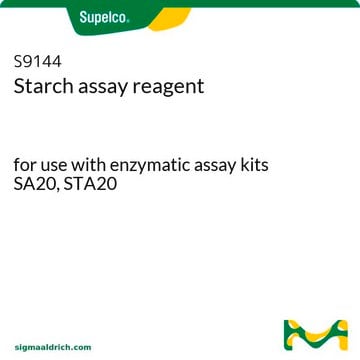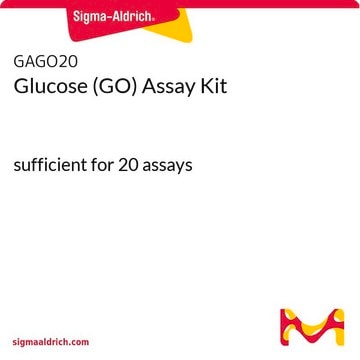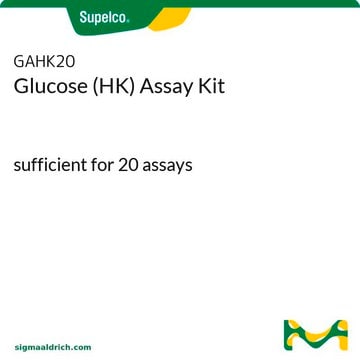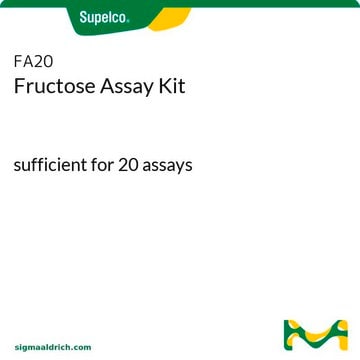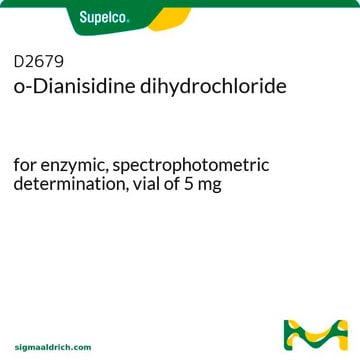STA20
Starch (GO/P) Assay Kit
sufficient for 20 assays
Synonym(s):
Starch Measurement Kit
About This Item
Recommended Products
usage
sufficient for 20 assays
Quality Level
application(s)
food and beverages
general analytical
storage temp.
2-8°C
General description
Application
Suitability
Principle
Kit Components Only
- α-Amylase, Heat Stable .5 mL
- Starch Assay Reagent 1 mL/vial
- Glucose Oxidase/Peroxidase Reagent 1 capsule
- o-Dianisidine Reagent 5 mg
- Glucose Standard Solution .5 mL
- Wheat Starch 1 g
- Corn Starch 1 g
Signal Word
Danger
Hazard Statements
Precautionary Statements
Hazard Classifications
Acute Tox. 4 Oral - Carc. 1B - Eye Dam. 1 - Resp. Sens. 1 - Skin Corr. 1 - STOT SE 3
Target Organs
Respiratory system
Storage Class Code
6.1C - Combustible acute toxic Cat.3 / toxic compounds or compounds which causing chronic effects
Flash Point(F)
Not applicable
Flash Point(C)
Not applicable
Certificates of Analysis (COA)
Search for Certificates of Analysis (COA) by entering the products Lot/Batch Number. Lot and Batch Numbers can be found on a product’s label following the words ‘Lot’ or ‘Batch’.
Already Own This Product?
Find documentation for the products that you have recently purchased in the Document Library.
Customers Also Viewed
Our team of scientists has experience in all areas of research including Life Science, Material Science, Chemical Synthesis, Chromatography, Analytical and many others.
Contact Technical Service